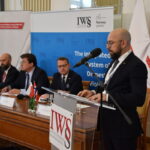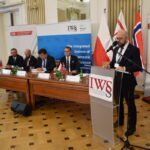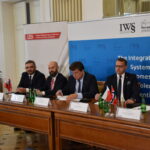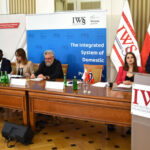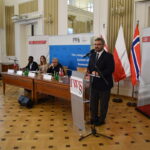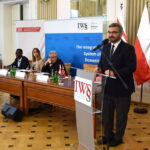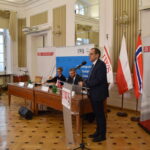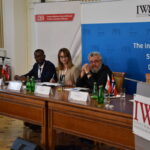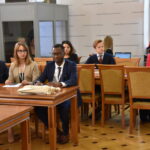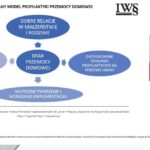How to better prevent domestic violence?
2022-10-03

Researchers from various legal fields and social sciences discussed better effectiveness of prevention against domestic violence. The international conference at the Justice Institute was organized within the framework of the Polish-Norwegian cooperation program.
A two-day conference on countering domestic violence entitled. “How to help victims of domestic violence and what can be done better? – review of existing solutions and proposition of new activities” was organized on September 29-30, 2022 in a hybrid model. On the first day, scholars discussed stationary at the Warsaw headquarters of the Justice Institute, and on the second day they connected via an online platform.
At the opening of the conference, the Ministry of Justice was represented by Deputy Minister Dr. Marcin Romanowski. He thanked the entire project, which aims to better protect household members from violence and improve relationships within the family. – Combating domestic violence is a very important part of our government’s policy. That is why we have made several important legislative changes. Already two years ago, we introduced an immediate order for the violent person to leave the apartment,” said Dr. Romaszewski.
The new tool is proving, according to official data, to be effective, as the first effects of improved security in Polish homes can already be seen. Indeed, for 2 years, 7,000 such preventive restraining orders have been issued against victims. – The statistics we analyze show that domestic violence is declining in Poland. It may be too early to discuss the sustainability of this trend, but there is also no indication that this decline is related to lower detection rates. On the contrary, all the data prove that detection, traceability of domestic violence is increasing. Our commitment to combating domestic violence is bearing fruit with good results,” the deputy justice minister added.
The goal of the organizers of the international conference is to raise public awareness of the phenomenon of domestic violence, as well as to inform the public about the Polish-Norwegian project within the framework of the Justice Program.This is part of the research project “Integrated System for Prevention of Domestic Violence”, which we are honored to conduct in cooperation with our Norwegian partner University of Stavanger. During our conference, important research on domestic violence is presented, as well as ways to prevent this phenomenon,” said Prof. Marcin Wielec, director of the Justice Institute.
An important element in the policy of the Polish state is the prevention of domestic violence – The idea of our project is to take preventive measures, which should be implemented as systemic measures at the local level, which after a test phase in selected municipalities could be implemented on a wider scale,” said Prof. Marcin Wielec, director of the Justice Institute.
The Polish-Norwegian project entitled. “Integrated System for the Prevention of Domestic Violence” is implemented by the IWS Center for Strategic Analysis. Its goal is to build, based on scientific assumptions and test in selected municipalities, a coherent model for improving domestic security. – This is a very important project for us, because it addresses a topical issue for Polish society. The proposed solutions that will follow the project will be addressed to specialists, researchers, policymakers and politicians, whose task will be to implement the developed model for the prevention of home help. But the main beneficiaries of our work will be primarily families at risk of domestic violence,” said Bartlomiej Oręziak, Coordinator of the IWS Center for Strategic Analysis.
The scientific basis of the project was explained by Dr. Jaroslaw Przeperski, director of the Center for Family Research at Nicolaus Copernicus University in Torun. He pointed out that the conditions of Polish local governments are very different, and the biggest difficulty is to develop such a model of counteracting violence, which on the one hand will be effective, and on the other hand will be possible to implement.
The project within the framework of international cooperation is innovative because it focuses on prevention before a family is exposed to violence. – In state policy, we have most often seen reactive solutions, that is, the application of state intervention to disturbing phenomena. This is also the case in the policy of applying punishment for domestic violence. And our task is to create such a work project so that this violence does not happen at all. The goal of our project is to raise the quality of life as much as possible, so that these necessary state interventions are as few as possible,” explained Dr. Jaroslaw Przeperski.
The director of Toronto’s Family Research Center pointed out that it is necessary to improve relationships among household members, because where there are good relationships in the family, violence very rarely occurs. Good relationality among people makes people happier, so their quality of life improves. The project will implement solutions at the level of selected municipal governments. Later, the time will come for evaluation, that is, to see if these solutions work, and only on this basis will a domestic violence prevention system be developed that can be implemented in municipalities nationwide. – At first, positions of project coordinators will be created in these selected local governments, whose task will be to establish contact with institutions responsible for preventing domestic violence and to analyze the causes of this violence. There will also be centers for families, i.e. tools for cooperation between various institutions that counteract violence, but also deal with the improvement of relations in families,” said Malgorzata Grzdzielewska, a model development specialist in the “Integrated System for Counteracting Domestic Violence” project.
The two-day conference, organized by the IWS, was an opportunity to exchange experiences of researchers and practitioners from several European countries. Prof. Anna-Maria Getoš Kalac of the Department of Criminal Law at the University of Zagreb pointed out that over the past few decades, the phenomenon of domestic violence around the world has been systematically transformed from a “private” matter into an issue of exceptional “state/public” importance. However, there are few reliable and empirically grounded evaluative studies that could shed some light on the question of whether this approach of criminal law has actually succeeded in dealing effectively with the phenomenon of domestic violence. The Croatian professor pointed out that by “creating a crime” of domestic violence and raising awareness of the need to report, prosecute and punish it, the phenomenon itself continues to grow, creating the impression that domestic violence is on the rise. – Without a solid empirical basis, it is difficult to assess whether policy solutions to combat such crimes are at all effective. A particular challenge concerns the middle generation of both perpetrators and victims of domestic violence, who were socialized in a time and environment when many of the forms of domestic violence we now criminalize were socially acceptable,” said Prof. Anna-Maria Getoš Kalac.
Scientific Conference entitled. “How to help victims of domestic violence and what can be done better? – review of existing solutions and proposition of new activities”, by the Justice Institute with the participation of the Norwegian project partner – the University of Stavanger, within the framework of the Justice Program financed by Norwegian and national funds.



